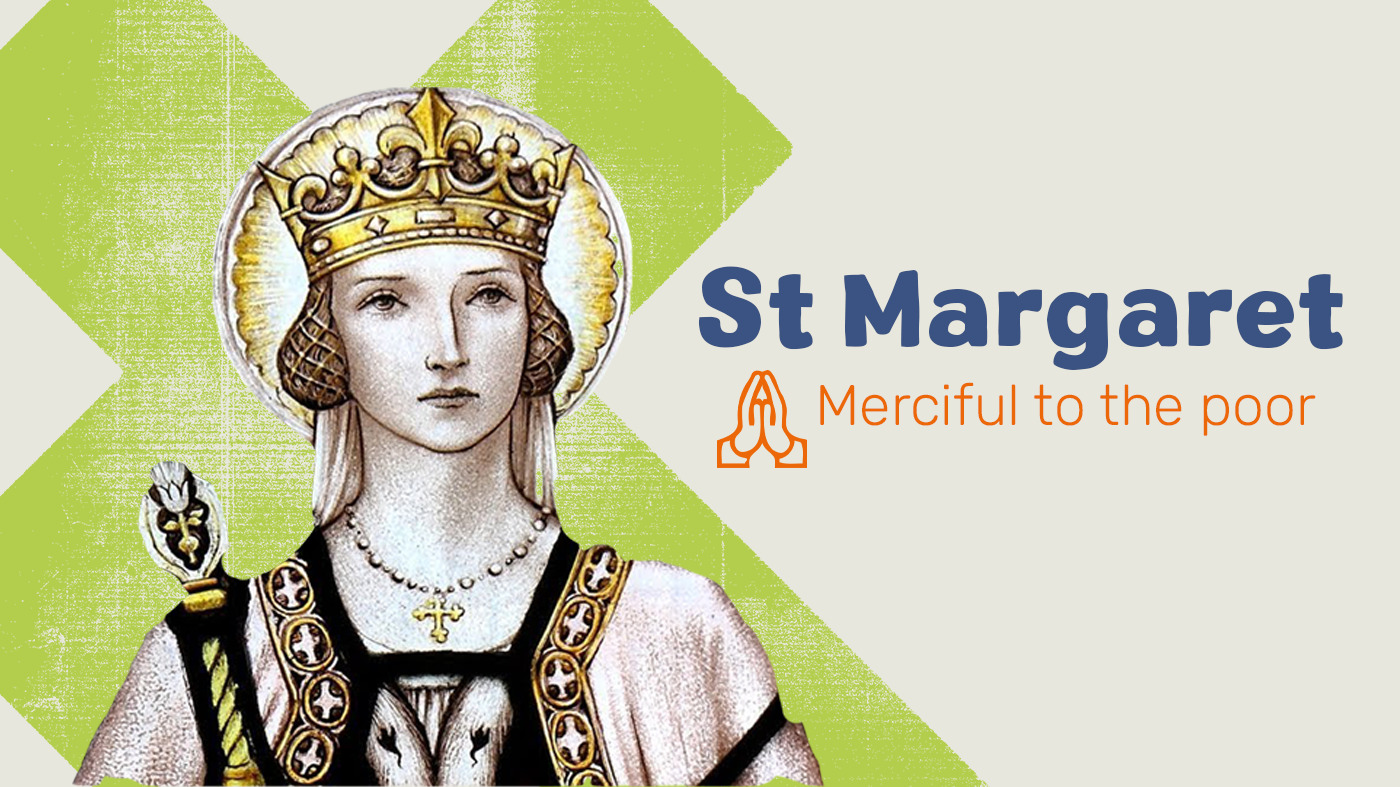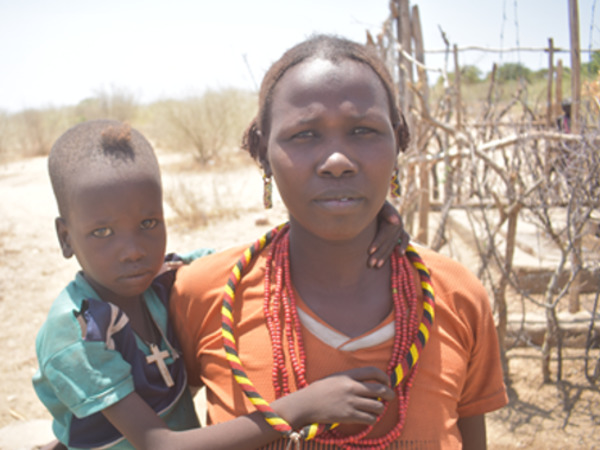St Margaret of Scotland
16 November 2023

St Margaret of Scotland was a Saxon princess, queen consort to Malcolm III Canmore, king of Scotland, and a woman of devout faith. Her life, a testament to Catholic virtue, continues to inspire and resonate with people all over the world, making her one of Scotland's most beloved patron saints.
Early life
Margaret was born around 1045 in Hungary, where her family lived in exile. She was the daughter of Edward the Exile, son of King Edmund Ironside, who had been sent to the Swedish court of Olof Skötkonung by Canute, following the Danish conquest of England in 1016.
She and her family returned to England in 1057 when her father was recalled as a possible successor to her great-uncle, King Edward the Confessor. Her father died immediately upon arrival, but Margaret, her mother, Agatha, and her siblings continued to reside at the court. However, the Norman Conquest of 1066 under William the Conqueror forced them once more into exile. While attempting to flee to the continent, a storm drove their ship north, and they landed on the shores of Scotland.
Becoming Queen
Malcolm III, King of Scots, welcomed the family, and, captivated by Margaret’s piety and intelligence, sought her hand in marriage. They married in 1070 at the Castle of Dunfermline. Together they had eight children - six sons and two daughters. Three of her sons became kings of Scotland, and it’s said she raised just and holy rulers.
It’s also said she softened Malcolm’s temper, polished his manners, and made him into one of the most virtuous Scottish Kings ever. When Margaret and Malcolm would go to church during Lent and Advent, they made a habit of washing the feet of poor people and giving them money on their way home.
Despite being a queen, Margaret was a humble, loving and generous woman, taking in the homeless and feeding orphans. Legend says she would sit on a stone outside Dunfermline Castle for people in trouble to find her. Poor people could also enter the castle where the King and Queen would feed them.
She also had great compassion for English captives in Scotland, often paying their ransoms and setting them free.It’s because of her kind and caring nature and work with the poor that Margaret is one of our patron saints.
Religious influence
Margaret also had a significant influence on the Church in Scotland. Her primary focus was on the reform of the Scottish Church, bringing its practices more closely into line with those of Rome. She actively encouraged the observance of Lent, the proper celebration of Mass, and the reception of Holy Communion.
Under Queen Margaret’s leadership, Church councils promoted Easter communion and, much to the joy of the working-class, abstinence from servile work on a Sunday.
In those days, priests said Mass in many dialects of Gaelic, but Margaret influenced the shift to the unifying language of Latin. By adopting Latin to celebrate the Mass, she believed all Scots could worship together in unity, along with the other Christians of Western Europe. Many people believe that in doing this, it was not only Queen Margaret’s goal to unite the Scots, but also the two nations of Scotland and England - an attempt to end the bloody warfare between the two countries.
Margaret also introduced a free ferry across the Firth of Forth, so pilgrims could visit St Andrew’s Cathedral. This is where North and South Queensferry got their names from! She also supported the founding of churches and monasteries, including the Benedictine abbey at Dunfermline.
Death
In 1093, her husband, King Malcolm, and their eldest son, Edward, were tragically killed in battle near Alnwick, Northumberland, during an ill-fated raid into England. Margaret, already weakened by illness, felt deep sorrow over their loss. She died just three days later, on November 16, 1093, in Edinburgh Castle. Her body was buried before the high altar at Dunfermline Abbey.
It took until 1250 for Margaret to be canonised by Pope Innocent IV, and she was re-interred in Dunfermline Cathedral.
Margaret will always be remembered for her generous, kind spirit, and we are honoured to have her as one of our Patron Saints.

“Knowledge is power. Information is liberating. Education is the premise of progress in every society, in every family.”

In March, SCIAF received £125,000 from the Scottish Government’s Humanitarian Emergency Fund to provide food and safe water in Ethiopia.

SCIAF has some dedicated supporters – but the pupils and staff at St Patrick’s Primary in Auchinleck are amongst the very best!
Previous
Back to